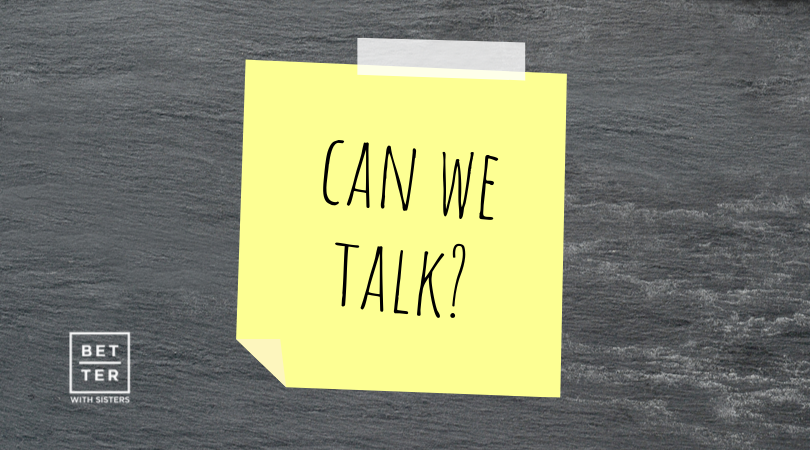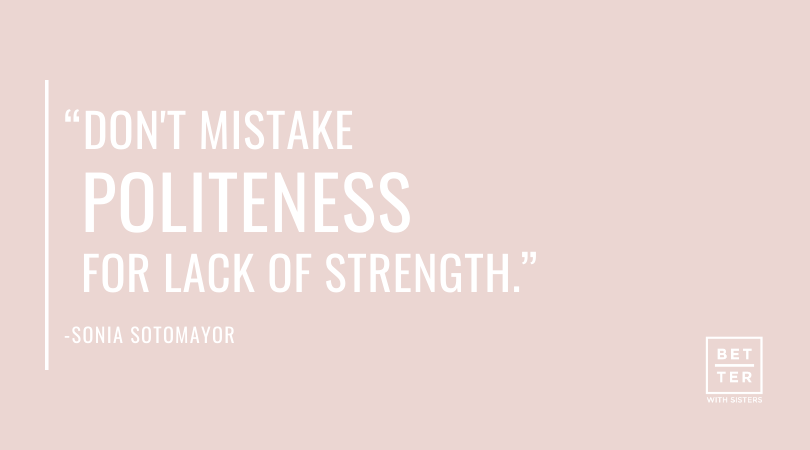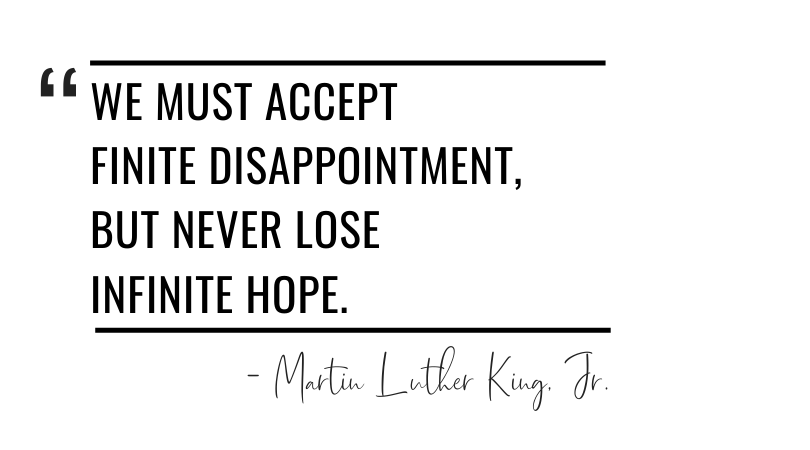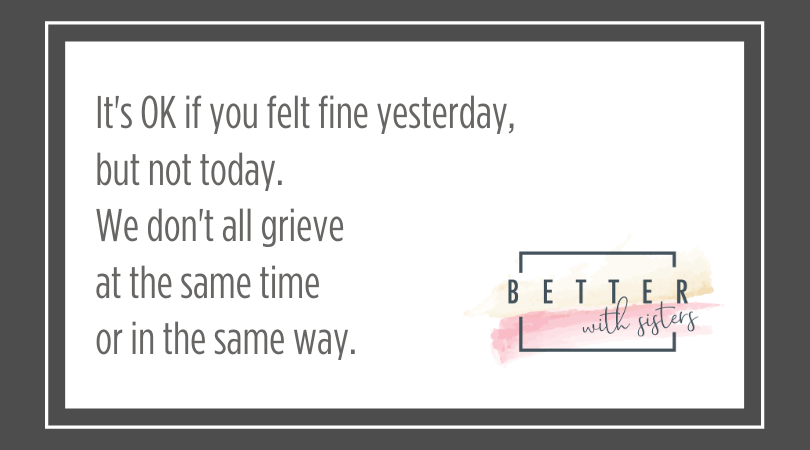It happens often… you’re having a conversation with someone and you just can’t seem to get the words out to express yourself. Sometimes, it happens in casual conversation; no big deal! Other times, the stakes are a little higher (i.e. you really need to work through a problem and get your point across!) and it’s just plain frustrating that you can’t express your thoughts the way you’d like. In those moments, you might be wishing you were a more effective communicator. You’re not alone – we’ve all been there!
The reality is there are few individuals capable of saying exactly what they mean, the way they mean to say it, in every conversation. However, there are some people who are more effective communicators than others, and if you are someone who wishes they were just a little better with this particular skill, we have good news – there’s hope! We’re sharing 5 practical tips to help ANYONE become a better communicator.
Everyday chit chat is easy enough – but when you’re trying your best to get your point across, whether for a personal matter or in a professional capacity, the process can be challenging. Effective communication in these scenarios is vital! You can’t get what you want, or what you need if you can’t clearly and concisely communicate that need or want. People cannot read your mind! Every successful relationship between two people requires the understanding gained from an open dialogue in which both parties are actively listening and understanding eachothers’ needs and wants.
One example of a relationship that absolutely REQUIRES effective communication: marriage! If you’re married yourself, you can probably attest to the fact that your happy days are not a result of dumb luck. Marriage can be really hard work. When we say work, we mean it’s hard to communicate on a constant basis with someone that you love, in a manner that is respectful and at the same time, gets your needs across and met. And at the same time, understanding your partner’s needs and meeting those needs. Communication, when it’s effective, makes that work a little bit easier. But it’s still work in that it requires awareness and conscious effort. It requires respect for your partner and a lot of self-control, because by nature, it’s a personal thing. Controlling those emotions and staying clear in your message is what makes communicating in your personal relationships manageable.
On a professional level, whether you’re talking with a service provider, like calling your cable company to complain about something, or you’re talking with your boss or a colleague, there’s a level of communication that is required. If you want something done, or a problem solved, you need to be able to effectively communicate what the problem is and what the outcome is that you’re looking for…and it has to be something that they can actually do to work with you to accomplish. A lot of people are intimidated by these types of conversations. They don’t like conflict or asking for what they want. They don’t like being the person that’s seen as aggressive or assertive, because it’s uncomfortable. We want to take the discomfort out of the idea of talking to someone effectively. It’s a much easier skill than people realize.
Being an effective communicator isn’t always a natural talent. It’s something you become with practice, and that practice begins from the time you’re a baby learning how your sounds and body language help you navigate the world to get what you need to survive. As you grow, you learn vocabulary that enables you, when you use it, to become more efficient in expressing yourself. As an adult, there’s no reason this growing and evolving should ever stop! As you experience life and navigate different interpersonal situations, you realize there are common threads in the way people speak and behave. You see the patterns in how people respond to you when you choose certain words, tone, and body language. If you’re paying attention and are willing to learn from each situation, you’ll be able to hone your skills as a communicator in every scenario going forward.
Equally important to the ability to speak clearly is the concept of listening and trying to see the whole picture. It takes a lot of self-restraint and mindfulness. This is an integral part of being an effective communicator. Part of being a good communicator is hearing what the other person has to say. You need to process that information, and then share with them what you believe you heard. While you’re not always going to agree with the points being made, showing that you understand the other party shows your level of respect for them. When people feel respected and understood, they are much more likely to meet you in compromise and understanding of YOUR needs and wants.
In discussing effective communication, it’s really important to acknowledge that our body language is a form of communication. Non-verbal communication is also a skill that is developed, because if you don’t recognize that you do it, you can’t develop it. Controlling your nonverbal cues is so much a part of conveying whatever message it is you’re trying to get across. If you’re not aware of how you communicate your feelings and your thoughts with your physical signs, you could be doing harm to your relationships and to your situation. For example, if two people are having a conversation, and one person is rolling their eyes or crossing their arms or leaning away from the other, they’re conveying PLENTY without saying a single word. While they’re technically giving the other person a turn to speak, they might as well be interrupting and saying “NOPE!”. Those nonverbal cues are every bit as important to be aware of and to control as the words that come out of your mouth. That takes a lot of restraint and self-awareness to learn control of these non-verbal cues – but you can do it!
So, how exactly DO you hone the skills required to become a more effective communicator? Well, we’ve got 5 simple tips for you. We encourage you to take these tips and apply them to your day to day interactions. With practice and consistent effort, we guarantee your life is going to be so much easier.
- Know Your Message: Knowing what you’re going to say and why is possibly the most important part of communication. If it’s not clear to you, how can you possibly make it clear to anyone else? Know what you’re trying to convey… and if you’re going to be asking for something, whether that’s understanding, or compromise, or change of any sort, know what your “ask” is before you start speaking
- Stay Clear & Concise: If you’re talking about an issue, don’t bring up other incidents or irrelevant details; it dilutes your message. Keep on point about your topic. That makes it easier for the other person to understand what your needs and wants are. Consequently, you’re more likely to accomplish your goal.
- Listen, Listen, Listen!: And when you’re done listening, listen a little more. Communication is a two-way street, every time, without exception. If you’re not hearing what the other person is responding with, you’re not effectively communicating, you’re just talking. Chances are if you’re just talking, you’re not going to accomplish what you’re setting out to communicate.
- Be OPEN To The Dialogue: Again, communication is a two-way street. Process the response you’re getting and be flexible with your opinions and your position. There may be information you were previously unaware of that could change your point of view, or other perspectives you hadn’t considered. Treat each communication as an opportunity to learn and to grow.
- Don’t Be Afraid To Assert Yourself: Having conviction about what you’re speaking to is not a flaw. Knowing what you want and being willing to have the conversations required is a strength. Stay strong in your convictions when communicating with others. But, do it with respect because having a discussion doesn’t necessarily mean conflict. Don’t shy away from having the hard talks. Sometimes, that’s where the real growth happens. You might even be surprised at how easy it can be to accomplish your goals when you know what you want and you aren’t afraid to talk it out.
Communication helps us connect. It helps us grow. It helps us get things done. Whether in our personal relationships or in our professional capacity, our ability to effectively communicate our thoughts is essential to our success. We hope that these tips will help you become a more effective communicator.
With Sisterly Love,
Lan & Cathy
P.S. Check out Episode 21 of the podcast HERE ; we share our own experiences with bumbling through conversations (and teaching our kids how to grow into effective communicators in their own right).




